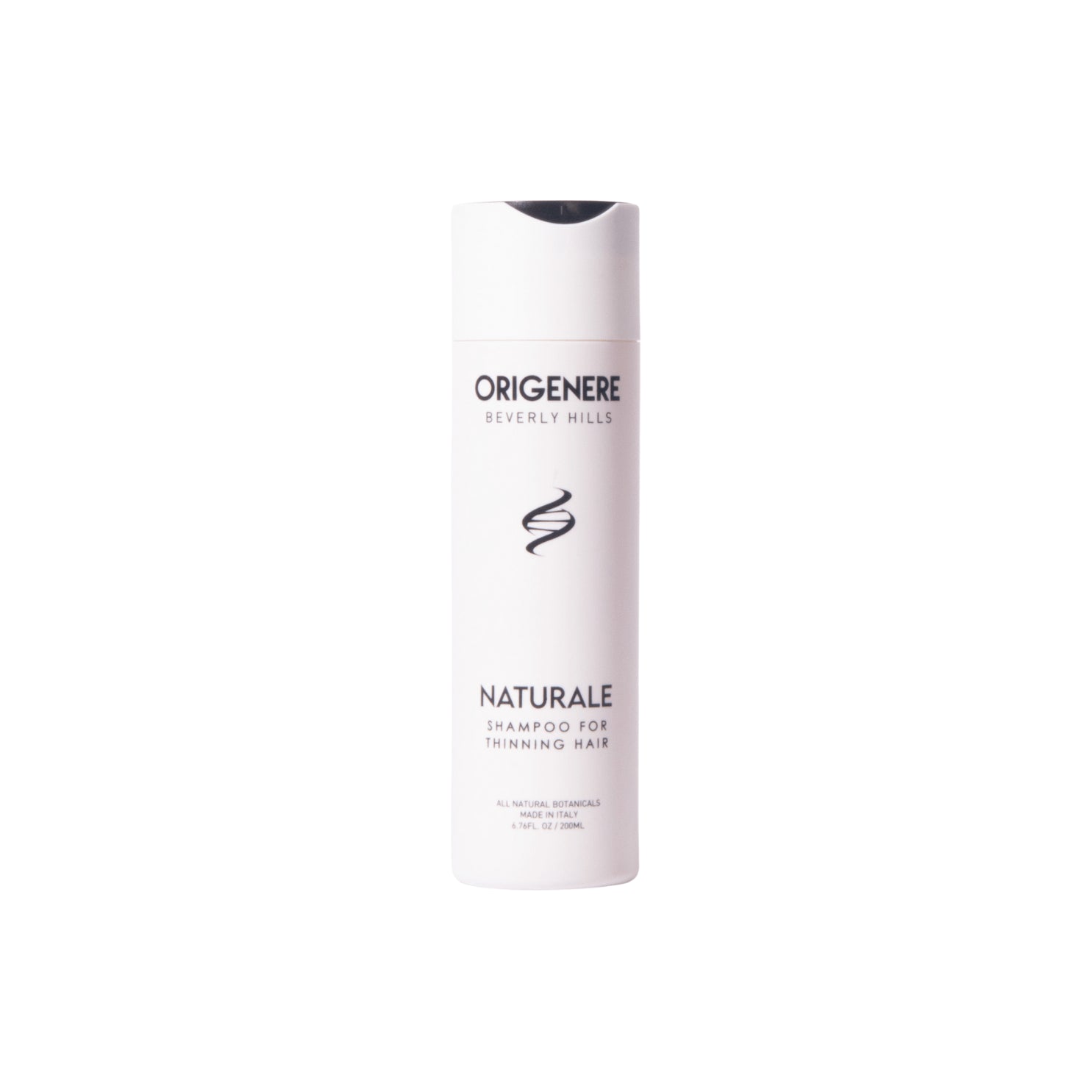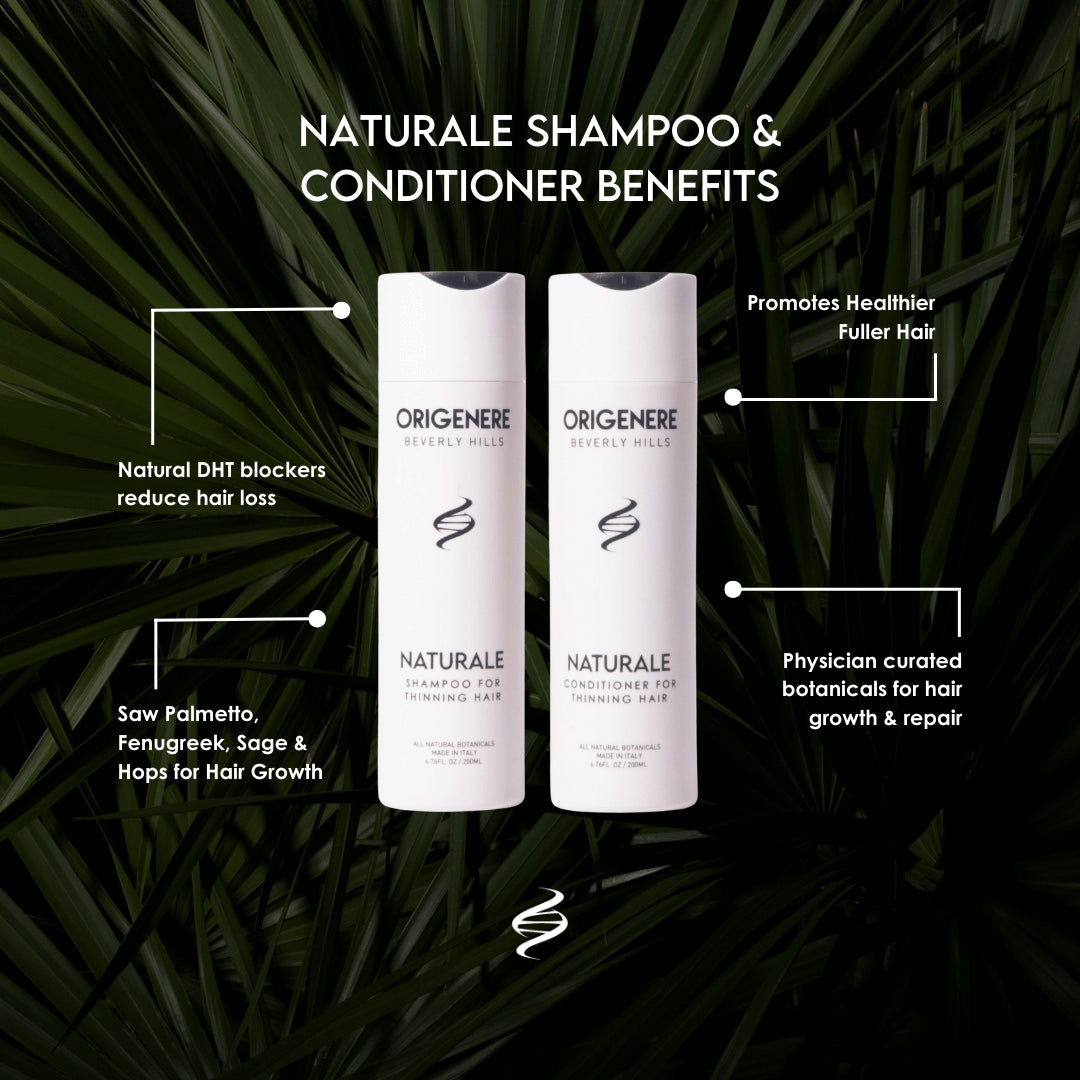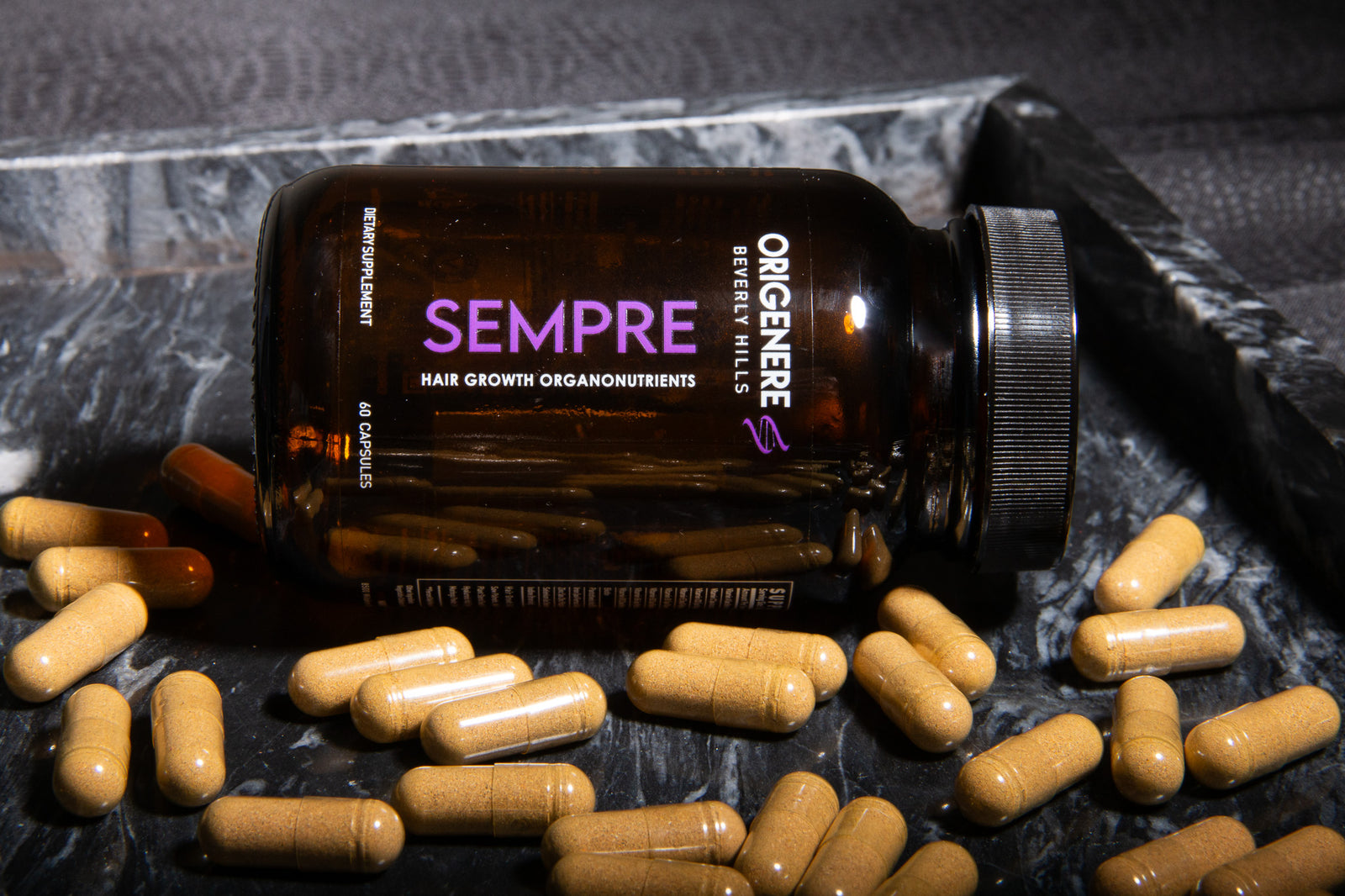Enhance Your Locks: Benefits of Sage for Hair

SAGE // Salvia officinalis — derived from the Latin Salvare meaning “to heal” — belongs to the mint family with over 900 aromatic species. Revered since antiquity, Sage bridges culinary tradition and modern cosmeceutical science, earning a central place in the Origenere Naturale Purity Collection.
Summary of Benefits of Sage for Hair
- 🌿 Rich source of vitamins A, C, E and K, calcium, folate, and B-complex nutrients
- 🌱 Phytonutrients like rosmarinic acid and ursolic acid proven to support scalp health
- 💆♀️ Improves blood circulation → better nutrient “irrigation” of follicles
- 🚫 Natural 5-α-reductase modulation (mild DHT-balancing effect)
- 🧴 Anti-inflammatory, antimicrobial, and astringent → combats dandruff & buildup
- 🌗 Possible hair-darkening and shine-enhancing effect
- ✨ Promotes thicker texture and diameter of strands
Have some Sage fun—read on for recipes, rinses, and even a cocktail celebrating this timeless botanical.

Historical Uses
From 1500 BC Egyptian remedies for itching to medieval European teas for circulation, Sage has long been valued for its restorative powers. Its reputation traveled the Silk Road, finding a second home in Chinese herbalism as both an antiseptic and antispasmodic.
Modern-Day Insights
Recent studies highlight Sage’s benefits not only for hair and scalp but also for cognition, metabolic regulation, and wound healing. Within Origenere’s Naturale Purity Collection, Sage serves as a balancing core ingredient for thinning or oil-imbalanced hair types.
Phytonutrient Profile
Key active compounds and their contributions to scalp and follicle health:
- Camphor – smooths the follicle shaft, decreases frizz, and boosts circulation.
- 1,8-Cineol – anti-inflammatory antioxidant that supports scalp clarity.
- Borneol – natural permeation enhancer improving absorption of nutrients.
- Thujone – encourages anagen-phase transition and cellular regeneration.
- Linalool – calming, anti-anxiety aromatic that promotes micro-circulation.
- Ursolic Acid – antioxidant that moderates 5-α-reductase activity for growth support.
- Rosmarinic Acid – neuroprotective and antioxidant; improves follicular resilience.
Recipes & Topical Applications
Sage Tea
Steep 2–4 stalks of fresh sage in hot water for 15–20 minutes. A soothing antioxidant-rich infusion for internal balance.
Herbal Hair Rinse
Use cooled sage tea as a post-wash rinse or blend with rosemary for added scalp stimulation. Ideal for oil balance and shine.
Botanical Oil Blend
Mix equal parts rosemary and sage essential oil with a carrier like jojoba. Massage into scalp for 30 minutes before rinsing. Always patch-test first.
Benefits Of Sage For Hair... and Fun
Sage Cocktail

Bring your botanical journey full-circle with a refreshing Sage-infused cocktail.
🌿 Sage-Infused Syrup
- 1 cup water + 1 cup sugar → heat to dissolve.
- Remove from heat, add ~10 Sage leaves, steep 10 min.
- Strain and cool.
🍸 Cocktail
- 1–2 oz bourbon
- ½ oz Sage syrup
- 2 splashes fresh lime
Enjoy responsibly.
Safety First
- 🌸 Perform a patch test before topical use.
- 💧 Always dilute essential oils with a carrier oil.
- ✅ Choose paraben-free, sulfate-free formulations.
- 🤰 Consult a clinician if pregnant, breastfeeding, or taking medications.
Naturale Purity Collection Results

Recommended Naturale Routine

Step 1 — Cleanse
Naturale Shampoo for Thinning Hair
Gently removes impurities while delivering botanical nutrients like Sage and Saw Palmetto to balance scalp oils.

Step 2 — Condition
Naturale Conditioner for Thinning Hair
Hydrates and protects with Sage and Rosemary extracts for soft, resilient strands.

Step 3 — Revitalize
Naturale Scalp & Hair Tonic
Daily leave-on treatment with Sage and Fenugreek actives to nourish follicles and enhance shine.
FAQs on Sage Benefits for Hair
1. How does Sage support hair growth?
Compounds like ursolic acid and rosmarinic acid stimulate micro-circulation and protect follicles from oxidative stress, helping hair stay in the growth phase longer.
2. Does Sage help control dandruff or scalp buildup?
Yes. Its natural antimicrobial and astringent qualities help balance sebum and reduce flaking, leaving the scalp refreshed and clean.
3. Is Sage a natural DHT blocker?
Sage’s ursolic acid can modulate the 5-α-reductase enzyme linked to DHT formation, providing a mild, botanical approach to follicle preservation.
4. Can I use Sage oil directly on my scalp?
Always dilute essential oils with a carrier oil such as jojoba before applying. Undiluted Sage oil may cause irritation in sensitive individuals.
5. Is Sage safe during pregnancy or breastfeeding?
Consult your healthcare provider first. Because Sage contains thujone and other potent actives, professional guidance is advised for prenatal use.






Leave a comment